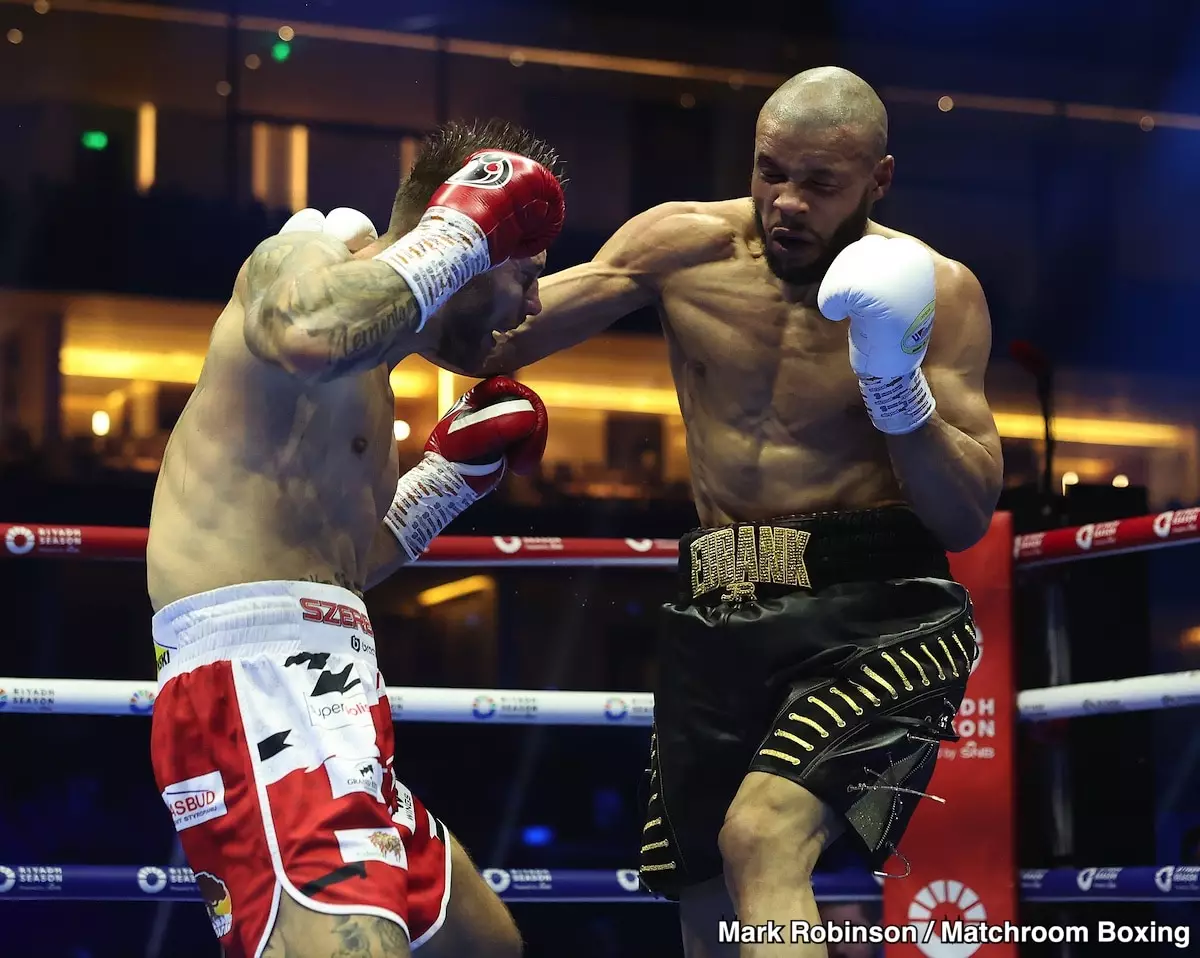Boxing has evolved beyond just a sport; it has become a spectacle, influenced heavily by personalities that draw spectators beyond just fight enthusiasts. In this landscape, fighters like Chris Eubank Jr. have emerged, embodying this blend of sport and entertainment. Eubank Jr., with a mixed record of 35 wins and 3 losses, has gained notoriety not just for his performances in the ring but also for his public persona, which some critics, including former champion Carl Froch, suggest tends to lean towards the glamorous rather than the competitive.
Froch argues that Eubank Jr. does not genuinely reside at the top tier of boxing. His assertions come from a belief that Eubank Jr. prioritizes financial gain over the pursuit of achieving championship gold. This criticism raises an important question about motivation in boxing. While the need for financial stability cannot be dismissed, the traditional ethos of boxing has been to strive for greatness within the sport. As Eubank Jr. approaches the twilight of his career at 35, his focus seems more around marquee matchups that promise significant monetary rewards rather than the rigorous contest for world titles that characterized the careers of past champions.
Carl Froch’s perspective is essential in understanding Eubank Jr.’s approach to boxing. Froch takes a clear stand by stating that Eubank Jr. does not belong at the world level, indicating a belief that his skill set is inadequate for serious competition. This sentiment resonates with fans and pundits who feel that the sport is losing its competitive edge when fighters opt to engage in ‘celebrity fights’ instead of competing against the best opponents available. The cherry-picking of bouts, as Froch notes, dilutes the quality of competition, leaving the realm of professional boxing less appealing to purists who crave authenticity.
Eubank Jr.’s notable fight against George Groves for the WBA super middleweight title ended in a loss, marking a rare venture into the championship fray. This highlights his previous focus on maintaining a lighter schedule against less formidable opponents, raising suspicions regarding his commitment to ascending the ranks of elite boxers. Fighting once for a world title over a span of 13 years isn’t merely a statistical anomaly; it suggests a lack of ambition toward legitimate championship success.
Fan Perception and Marketability
Despite Froch’s criticisms, Eubank Jr. enjoys a particular advantage—familiarity with the UK audience due to his lineage as the son of legendary fighter Chris Eubank. This connection alone raises his profile dramatically, allowing him to attract viewership irrespective of his technical abilities. The audience’s nostalgia plays a significant role in Eubank Jr.’s marketability; many fans may excuse his shortcomings in skill because they gravitate towards the emotional connection they have with the Eubank name.
Eubank Jr.’s potential matchups against well-known figures in the boxing realm, such as Conor Benn, Canelo Alvarez, and Billy Joe Saunders, raise eyebrows and generate buzz not because of his championship prowess but rather from the allure of the event itself. These bouts are being framed as “celebrity-level matches,” suggesting that the spectacle surrounding the fight often overrides the skill sets of the fighters involved. As Froch notes, there’s an expectation that the fight between Eubank Jr. and Benn would be exciting enough to command significant attention, even if neither fighter has maintained a steady trajectory of elite-level competition.
As Eubank Jr. forges his path toward retirement, it’s clear that he is not just seeking fights; he’s seeking significant financial endorsements that will secure his lifestyle long after the gloves are hung up for the last time. This approach compels analysts and fans alike to reckon with their own views on what constitutes success in boxing. Is it merely the number of belts or the riches amassed along the way? As the lines blur between sport and entertainment, Chris Eubank Jr. symbolizes a shift in the boxing paradigm: where marketability can sometimes eclipse merit.
In an era where fighters must be entertainers as much as athletes, Eubank Jr. has positioned himself as a figure who encapsulates this change—a product of a sport fracturing under the weight of its own spectacle. To many, he may not represent what it means to be a world champion, but to a growing audience, he stands as a testament to the evolving narrative of boxing in the 21st century.


Leave a Reply